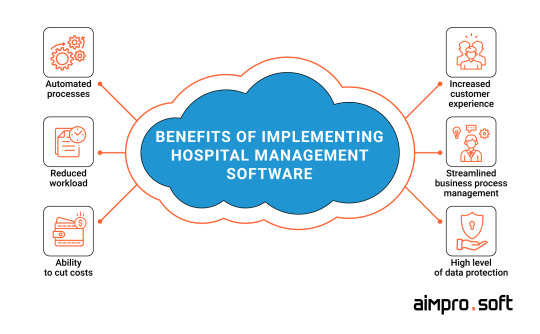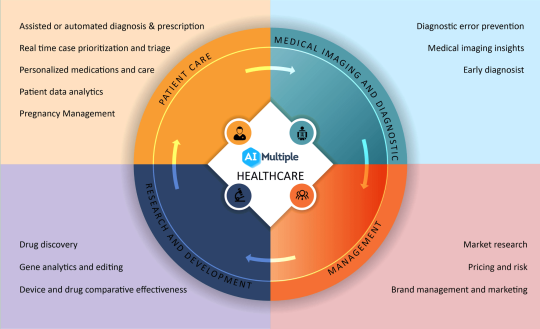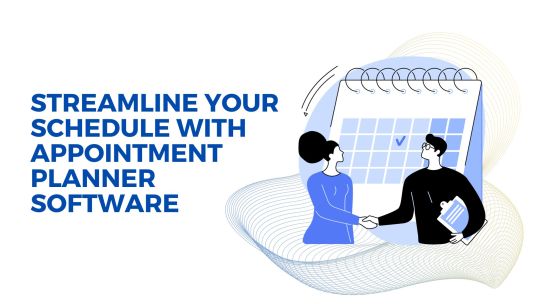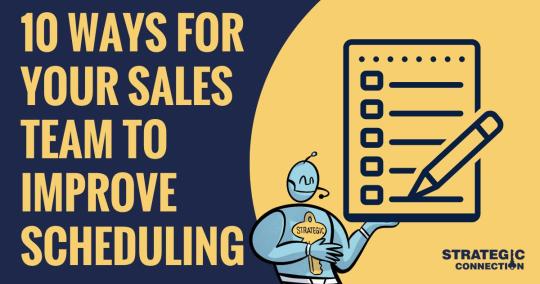#appointment scheduling
Explore tagged Tumblr posts
Text
Any AI Agent Can Talk. Few Can Be Trusted
New Post has been published on https://thedigitalinsider.com/any-ai-agent-can-talk-few-can-be-trusted/
Any AI Agent Can Talk. Few Can Be Trusted


The need for AI agents in healthcare is urgent. Across the industry, overworked teams are inundated with time-intensive tasks that hold up patient care. Clinicians are stretched thin, payer call centers are overwhelmed, and patients are left waiting for answers to immediate concerns.
AI agents can help by filling profound gaps, extending the reach and availability of clinical and administrative staff and reducing burnout of health staff and patients alike. But before we can do that, we need a strong basis for building trust in AI agents. That trust won’t come from a warm tone of voice or conversational fluency. It comes from engineering.
Even as interest in AI agents skyrockets and headlines trumpet the promise of agentic AI, healthcare leaders – accountable to their patients and communities – remain hesitant to deploy this technology at scale. Startups are touting agentic capabilities that range from automating mundane tasks like appointment scheduling to high-touch patient communication and care. Yet, most have yet to prove these engagements are safe.
Many of them never will.
The reality is, anyone can spin up a voice agent powered by a large language model (LLM), give it a compassionate tone, and script a conversation that sounds convincing. There are plenty of platforms like this hawking their agents in every industry. Their agents might look and sound different, but all of them behave the same – prone to hallucinations, unable to verify critical facts, and missing mechanisms that ensure accountability.
This approach – building an often too-thin wrapper around a foundational LLM – might work in industries like retail or hospitality, but will fail in healthcare. Foundational models are extraordinary tools, but they’re largely general-purpose; they weren’t trained specifically on clinical protocols, payer policies, or regulatory standards. Even the most eloquent agents built on these models can drift into hallucinatory territory, answering questions they shouldn’t, inventing facts, or failing to recognize when a human needs to be brought into the loop.
The consequences of these behaviors aren’t theoretical. They can confuse patients, interfere with care, and result in costly human rework. This isn’t an intelligence problem. It’s an infrastructure problem.
To operate safely, effectively, and reliably in healthcare, AI agents need to be more than just autonomous voices on the other end of the phone. They must be operated by systems engineered specifically for control, context, and accountability. From my experience building these systems, here’s what that looks like in practice.
Response control can render hallucinations non-existent
AI agents in healthcare can’t just generate plausible answers. They need to deliver the correct ones, every time. This requires a controllable “action space” – a mechanism that allows the AI to understand and facilitate natural conversation, but ensures every possible response is bounded by predefined, approved logic.
With response control parameters built in, agents can only reference verified protocols, pre-defined operating procedures, and regulatory standards. The model’s creativity is harnessed to guide interactions rather than improvise facts. This is how healthcare leaders can ensure the risk of hallucination is eliminated entirely – not by testing in a pilot or a single focus group, but by designing the risk out on the ground floor.
Specialized knowledge graphs can ensure trusted exchanges
The context of every healthcare conversation is deeply personal. Two people with type 2 diabetes might live in the same neighborhood and fit the same risk profile. Their eligibility for a specific medication will vary based on their medical history, their doctor’s treatment guideline, their insurance plan, and formulary rules.
AI agents not only need access to this context, but they need to be able to reason with it in real time. A specialized knowledge graph provides that capability. It’s a structured way of representing information from multiple trusted sources that allows agents to validate what they hear and ensure the information they give back is both accurate and personalized. Agents without this layer might sound informed, but they’re really just following rigid workflows and filling in the blanks.
Robust review systems can evaluate accuracy
A patient might hang up with an AI agent and feel satisfied, but the work for the agent is far from over. Healthcare organizations need assurance that the agent not only produced correct information, but understood and documented the interaction. That’s where automated post-processing systems come in.
A robust review system should evaluate each and every conversation with the same fine-tooth-comb level of scrutiny a human supervisor with all the time in the world would bring. It should be able to identify whether the response was accurate, ensure the right information was captured, and determine whether or not follow-up is required. If something isn’t right, the agent should be able to escalate to a human, but if everything checks out, the task can be checked off the to-do list with confidence.
Beyond these three foundational elements required to engineer trust, every agentic AI infrastructure needs a robust security and compliance framework that protects patient data and ensures agents operate within regulated bounds. That framework should include strict adherence to common industry standards like SOC 2 and HIPAA, but should also have processes built in for bias testing, protected health information redaction, and data retention.
These security safeguards don’t just check compliance boxes. They form the backbone of a trustworthy system that can ensure every interaction is managed at a level patients and providers expect.
The healthcare industry doesn’t need more AI hype. It needs reliable AI infrastructure. In the case of agentic AI, trust won’t be earned as much as it will be engineered.
#agent#Agentic AI#agents#ai#ai agent#AI AGENTS#AI Infrastructure#appointment scheduling#approach#autonomous#Bias#Building#burnout#call Centers#clinical#communication#compliance#creativity#data#diabetes#Drift#Engineer#engineering#Facts#focus#form#framework#Graph#Hallucination#hallucinations
0 notes
Text
5 Email Types That Should Never Be Automated and Require a Personal Touch
Email automation is all in vogue these days, with the majority of businesses have embraced it as a core tenet of their email marketing strategy. However, it is wrong to believe that email automation could be effectively employed for all your email marketing needs. For certain situations and context, using human-led emails are still the best way to go to improve your conversion rates and your bottom line. In this article, we’ve listed the 5 email types that should never be automated.
1. Appointment Setting
Arguably, appointment setting is one of the most difficult parts of business development. Its goal is to offer a prospect a good first impression of your business and gets them interested enough to meet up with your salesperson, and ideally, close a deal.
“Appointment setting emails should always be done manually and never automated”
Just imagine if you were to receive a call from a business interested in making you their client, but on receiving the only voice you heard on the other end was that of a robot blurting out a predetermined script. Likely, your natural response would be to immediately hang up and block the number as spam.
So why expect something different from emails. Emails of this category should always have a human element to them and also ideally, encourage a response in order to stir a two-way conversation – an essential component of any successful lead nurturing. Automation is also unhelpful for these email types because they tend to be tracked. This can make some people uncomfortable in responding to it. An even worse prospect is for the automated email to not even reach them in the first place, the server blocking their access to the target recipient.
2. Customer Service Response
The surest way to lose a client’s trust is to automate your responses to their urgent queries. This is especially true in the case of a small to medium-sized business, which yet to establish their brand as a leader within their niche.
When a client is facing a problem with your service or product, they expect you to be able to address it promptly and effectively. No matter how advanced and automated an email marketing system you may employ, in such a context, it simply cannot compete with the skilled human represented when it comes to flexibility and problem resolution.
Not only that, by having your customer service responses automated, you might also be giving off an impression of your business that it doesn’t really value its clients. Feeling unappreciated, such clients are likely to leave you for your competitors.
3. Repeat Promotions
This is a type of email that quite a significant number of businesses make the mistake of automating. Successful repeat promotion requires a high degree of adjustment to tactics based on your intended audience’s characteristics and behavior. For instance, if the receiver hasn’t even clicked opened your first email, then you will need to send the same email the next day but with a changed subject line.
In such a context, setting up an automated workflow might actually be much more time-consuming rather than just simply doing it manually.
“A crucial component of successful email conversion is personalization”
For small to medium-sized businesses to whom every individual customer could be important for their business growth, incorporating a human element into each of the send promotion emails ensures a very high level of personalization, and by extension, better conversion success rates.
4. Webinar Invites
Automation is a ‘dumb’ system in that it functions only based on pre-defined rules and triggers, unable to understand the wider context of the situation. Thus, it can actually be more prone to error than a human marketer, sending repeat email or one of the wrong types where it shouldn’t
If a person has already responded to your webinar invite, you would want to exclude them from later emails in order to not annoy them. Setting up a reliable automated email marketing workflow that is able to address this can become unnecessarily complex. Unless you are a particularly large business managing hundreds of thousands of leads, it is much more effective (and actually cheaper) to send emails manually.
5. Lost Customer
Acquiring a new customer can cost a business five times more than retaining an existing one. Given the current business climate, an SME can ill-afford to lose any of their existing clients. But, no matter how good a service or product you might provide, the risk can only be reduced but never completely eliminated.
With that said, just because a client has dropped you, even it was for the most random or arbitrary of reasons, you still have a good chance of regaining them back with the help of a well-crafted email. Obviously, this would entail generating and sending an email uniquely personal to them, one that optimally that not only showcases values but also entices a conversation.
An automated generic email will provide them with nothing of value and, if anything, prompt them to unsubscribe from your newsletter, and thus, completely cut themselves off of what remains of the relationship.
An Affordable and Effective B2B Email Marketing Campaign Solution
It takes more than just an interesting headline to generate a response. TLM is a pay per lead inside sales firm that can help you better accomplish your B2B lead generation and conversion goals without you having to break your budget. For more information on our services or any queries, please don’t hesitate to reach out to our highly professional and friendly staff by calling +1 716 941 4090 or emailing us at [email protected].
#b2b lead generation#email marketing#qualified leads#lead generation services#the lead market#b2b email marketing#pay per lead#b2b leads usa#msp#msp lead generation services usa#lead generation MSP#appointment scheduling#targeted Campaigning#Lead qualification#email automation#email list#email marketing strategies
0 notes
Text
Is your medspa booking process costing you clients? ⏰ Our latest blog reveals 5 timeless steps to create a seamless, client-friendly experience that boosts conversions. Make booking easy! #MedspaMarketing #ClientExperience
#aesthetic business#appointment scheduling#booking process#client experience#client retention#conversion rates#customer service#medspa booking#medspa growth#medspa marketing#no-shows#online booking#payment processing#transparency
0 notes
Text
Discover the Best Dental Software to Elevate Your Practice
Running a successful dental practice requires more than just clinical expertise. In today’s fast-paced world, outdated systems can slow you down and create inefficiencies. Modern solutions are designed to streamline operations, improve patient care, and boost productivity. Whether you’re managing a single office or multiple locations, the right tools can make all the difference. Industry leaders…
#Appointment scheduling#Cloud-based dental software#Dental practice management#Dental software solutions#Dental technology#Patient management software#Practice efficiency#Treatment planning software
0 notes
Text

How Effective Patient Engagement Can Reduce Patient No-shows
Discover how patient engagement strategies like appointment reminders and digital check-ins can reduce patient no-shows and improve health outcomes. Read blog to know more.
0 notes
Text
Efficient Appointment Scheduling for Busy Medical Practices: Maximize Your Time and Streamline Your Appointments
With a constant stream of patients, it can be challenging to keep up with scheduling appointments while also managing the day-to-day operations of your practice. However, efficient appointment scheduling is crucial for providing quality care to your patients and maintaining a successful practice. In this blog, we will discuss some tips and strategies for efficient appointment scheduling and how answering services can help streamline the process.

The Importance of Efficient Appointment Scheduling
Efficient appointment scheduling is crucial for the success of any medical practice. It ensures that patients receive timely care, reduces wait times, and maximizes the use of your resources. It also helps to improve patient satisfaction and retention, ultimately leading to a positive reputation for your practice. On the other hand, inefficient appointment scheduling can result in long wait times, frustrated patients, and a decrease in revenue. It can also be challenging for your staff to manage and can lead to overbooked or missed appointments. This can result in a loss of revenue and a negative impact on your practice's reputation.
Streamlining Appointment Scheduling with Answering Services
One way to efficiently manage appointments in a busy medical practice is by using answering services. These services provide a dedicated team of professionals to handle incoming calls and schedule appointments for your practice. Here are some ways that answering services can help streamline your appointment scheduling process:
24/7 Availability
Answering services are available 24/7, which means that patients can schedule appointments at their convenience. This eliminates the need for your staff to answer calls after hours, freeing up their time to focus on other essential tasks.
Reduce No-Shows
Missed appointments not only result in lost revenue but also disrupt your schedule and can affect patient care. Answering services can send out reminders to patients via text, email, or phone calls, reducing the number of no-shows. This ensures that your schedule remains on track, and patients receive the care they need.
Efficient Call Management
Answering services can efficiently manage incoming calls, ensuring that patients are connected with the right department or staff member. This reduces wait times for patients, improves their overall experience, and frees up your staff's time to focus on other tasks.
Efficient Appointment Scheduling Tips
Aside from using answering services, here are some tips for efficient appointment scheduling in busy medical practices:
1. Utilize an Online Scheduling System
An online scheduling system allows patients to schedule appointments directly from your website, reducing the need for phone calls. It also allows patients to see the availability of appointments in real-time, making the process more convenient for them.
2. Block Out Time for Urgent Appointments
It's essential to leave some room in your schedule for urgent appointments. This will help prevent overbooking and ensure that patients with urgent needs can be seen promptly.
3. Set Realistic Appointment Times
Be realistic when scheduling appointments and allow enough time for each patient. This will prevent long wait times and ensure that patients feel they are receiving the attention they need.
4. Utilize Automated Patient Reminders
Automated patient reminders, such as text messages or emails, can help reduce no-shows and improve patient communication. This will ensure that patients are aware of their upcoming appointments and can make any necessary changes in advance.
5. Use a Centralized System
Having a centralized system for appointment scheduling, such as a scheduling software or electronic health record (EHR), can help streamline the process. This will allow all staff members to have access to the same information and prevent double bookings or missed appointments.
Maximizing Your Time with Efficient Appointment Scheduling
Efficient appointment scheduling not only benefits your patients but also your staff and practice as a whole. By streamlining the process, you can maximize your time and focus on providing quality care to your patients. This will also help improve staff satisfaction and retention, as they will have a more manageable workload.
In Summary
Efficient appointment scheduling is crucial for the success of any busy medical practice. By utilizing answering services and following these tips, you can streamline the process and maximize your time. This will result in improved patient satisfaction, increased revenue, and a positive reputation for your practice. If you are looking for a reliable answering service for your medical practice, Call4Health offers customized medical answering services to fit your specific needs. With their 24/7 availability, automated patient reminders, and efficient call management, they can help streamline your appointment scheduling process. Contact Call4Health today to learn more about their services and how they can benefit your practice.
0 notes
Text

Featuring Robust Appointment Module an easy-to-use interface, this module allows users to view and manage all of their appointments in one place, making it easy to keep track of their schedule.
For more information: https://gymex.online/
0 notes
Text
Seamless Integration: The Key to Successful Hospital Management Systems

In today's rapidly evolving healthcare landscape, the effective implementation of hospital management system/software is essential for optimizing operations and enhancing patient care. A critical aspect of this implementation is seamless integration, ensuring that various components such as billing solutions, appointment scheduling, analytics dashboard, interoperability solutions, and user interface design work together harmoniously to meet the needs of healthcare providers and patients alike.
Billing solutions are integral to the financial health of hospitals, facilitating accurate and timely billing processes. By seamlessly integrating billing functionalities within the hospital management system, healthcare organizations can streamline revenue cycle management, reduce billing errors, and improve reimbursement rates.
Efficient appointment scheduling is crucial for maximizing resource utilization and minimizing patient wait times. Hospital management systems with robust scheduling modules enable healthcare providers to manage appointments effectively, optimize clinician schedules, and enhance patient access to care.
An analytics dashboard provides actionable insights into key performance metrics, allowing hospital administrators to make informed decisions and drive continuous improvement. By integrating an analytics dashboard within the hospital management system, stakeholders can monitor operational performance, identify trends, and implement data-driven strategies to enhance efficiency and quality of care.

Interoperability solutions facilitate seamless data exchange between disparate systems and healthcare providers, ensuring that patient information is readily accessible whenever and wherever it's needed. By integrating interoperability functionalities within the hospital management system, healthcare organizations can improve care coordination, enhance communication, and promote continuity of care across the healthcare continuum.
A user-friendly user interface design is essential for ensuring adoption and usability of the hospital management system among healthcare professionals. By prioritizing intuitive navigation, responsive design, and personalized user experiences, hospital management systems can enhance user satisfaction, productivity, and overall system effectiveness.
In conclusion, seamless integration of hospital management system/software components such as billing solutions, appointment scheduling, analytics dashboard, interoperability solutions, and user interface design is essential for optimizing hospital operations and improving patient care delivery. By embracing integration as a key principle, healthcare organizations can unlock the full potential of their management systems and achieve sustainable success in today's healthcare environment.
#Billing Solutions#Appointment Scheduling#Analytics Dashboard#Interoperability Solutions#User Interface Design
0 notes
Text
Many Agents Are Better than One: Transforming Business with AI Orchestration
New Post has been published on https://thedigitalinsider.com/many-agents-are-better-than-one-transforming-business-with-ai-orchestration/
Many Agents Are Better than One: Transforming Business with AI Orchestration


The collaborative power of multi-agent AI is here and ready to radically change how businesses operate, seek information, and make decisions.
If many hands make light work, then imagine what a network of AI agents can achieve.
AI has already improved productivity across industries, but its impact is often limited to isolated silos. For instance, think of an AI chatbot on an ecommerce site. It can handle basic customer inquiries but may struggle to perform more complex tasks that require cross-departmental collaboration, such as providing personalized recommendations, managing customer complaints, or coordinating with other parts of the business, such as inventory management. This fragmented approach not only limits the customer experience but also makes it hard for departments to exchange useful information—leaving potential innovations and productivity gains on the table.
Enter multi-agent AI orchestration – where multiple AI tools, or “agents,” work together seamlessly to drive better and more efficient outcomes. The move toward multi-agent collaboration will only be strengthened by recent breakthroughs, such as DeepSeek, which have introduced a new reality for the efficiency, scalability, and cost-effectiveness of AI.
Imagine multi-agent systems like a team of specialized workers in a factory, each with their own tasks but all working together to build a car. By coordinating their efforts and sharing information, they can achieve much more and do so more efficiently than working in isolation. Now, envision this collaborative power applied across various functions within companies in every industry. This is the transformative potential of multi-agent AI orchestration.
Industries like finance, manufacturing, retail, and others stand to benefit enormously from these technologies. By embracing multi-agent frameworks, organizations can unlock new levels of efficiency and innovation, improve the customer experience, and ultimately bring products and services to market faster.
Multi-Agent AI Systems Have Arrived
Multi-agent systems are no longer just a concept; they will soon transform how businesses operate, seek information, and make decisions. Enterprises are moving to them, leaning less on siloed AI interfaces in favor of a more collaborative approach. A year from now, I expect them to be indispensable in driving efficiency and productivity gains.
Enterprises like biopharmaceutical company Gilead Sciences are already harnessing these systems to transform user engagement, boost productivity, and achieve cost savings. Automating routine tasks and fostering seamless communication enables companies to focus on what they do best. In the case of Gilead, this means their critical work in preventing and treating life-threatening illnesses. Once completed, the system will underpin Gilead’s global IT operations and enable key business functions like finance and HR to communicate through an interconnected system of agents using Large Language Models.
This example highlights the vast potential of this technology beyond any one sector. Following are three key takeaways for leaders for this new era of AI, where multi-agents will work across entire businesses to assist humans in every role, from HR and finance to marketing and sales:
Embrace Multi-Agent Efficiency for a Competitive Edge
This technology offers a strategic advantage by creating a framework where AI agents work together to solve complex problems. By leveraging multi-agent orchestration, leaders can enhance operational efficiency, positioning their organizations ahead of the competition. In manufacturing, agents can manage the supply chain more efficiently by analyzing sales data and market trends to forecast demand, coordinating with suppliers for timely material delivery, and monitoring inventory levels in real-time. Similarly, an AI agent can help predict equipment issues and coordinate with others to schedule maintenance in a way that reduces operational interruptions.
Leverage AI to Enhance Cross-Departmental Collaboration
Breaking down silos and enhancing communication across departments can lead to more cohesive and efficient operations. In the banking sector, AI agents can streamline operations and improve customer service through coordinated efforts. For example, an agent handling customer inquiries can seamlessly transfer relevant information to another agent responsible for processing transactions, ensuring a smooth and efficient customer experience. By implementing these systems, leaders can foster better collaboration and drive overall organizational efficiency.
Tailor AI Solutions to Fit your Unique Needs
These systems are not one-size-fits-all. They should be tailored to meet the unique challenges of each company or industry. In retail, for example, AI agents can enhance the shopping experience by analyzing customer purchase history for personalized recommendations and managing inventory to keep popular items in stock. In healthcare, these systems can assist in patient diagnosis, manage medical records, and streamline appointment scheduling. While the underlying technology is similar, its application is much different. Leaders should work with AI and domain experts to create solutions that align with their goals, ensuring greater value.
The Path Forward
Multi-agent AI systems will transform business operations and innovation. By embracing these technologies, organizations can unlock new levels of efficiency and focus on bringing innovative solutions to market faster. For leaders, the message is clear: the future of business lies in harnessing the power of multi-agent orchestration. Companies that fail to act will fall behind.
#agent#agents#ai#ai agent#AI AGENTS#AI Chatbot#AI systems#ai tools#appointment scheduling#approach#banking#Business#change#chatbot#Cognizant#Collaboration#collaborative#communication#Companies#competition#cost savings#customer experience#customer service#data#deepseek#driving#efficiency#Enterprises#equipment#era
1 note
·
View note
Text
Parents will do whatever it takes for the sake of their children’s health and safety. This is evident among patients whose children have been diagnosed with chronic conditions, disabilities, or any other type of health problem.
0 notes
Text
Schedule Your Appointment Today for Quality Fencing and Decking Services!
Don’t miss out on the chance to secure your spot for our exceptional fencing and decking services. Reach out to us today to schedule an appointment and start planning your future project! To schedule an appointment, please contact our office at (289) 925-7762] or email us at [email : [email protected] ) Our team will be happy to assist you in finding a convenient time for your…

View On WordPress
0 notes
Text
Less stress, happier clients, and a smoother workday? Discover why a consistent schedule is KEY for Medspa success on our latest blog! ➡️ #MedspaTips #BusinessEfficiency #HappyClients
#appointment scheduling#business#business efficiency#Business Growth#client experience#client retention#client satisfaction#dailyprompt#digital marketing#digital-marketing#inventory management#marketing#marketing strategy#Medspa Management#medspa marketing#Medspa schedule#medspa success#productivity#seo#team efficiency#wellness marketing
0 notes
Text
Streamline Your Schedule with Appointment Planner Software

In today's fast-paced world, managing appointments efficiently is essential for businesses and individuals alike. Keeping track of appointments, meetings, and events can be a daunting task, but thanks to modern technology, there's a solution: Appointment Planner Software. In this article, we'll explore what appointment planner software is, its key features, and how it can benefit both businesses and individuals.
What is Appointment Planner Software?
Appointment planner software, also known as appointment scheduling software or appointment booking software, is a digital tool designed to streamline the process of scheduling appointments, meetings, and events. It eliminates the need for manual scheduling, reducing errors and saving valuable time.
Key Features of Appointment Planner Software:
Online Booking: One of the most significant advantages of appointment planner software is the ability to offer online booking. Clients or attendees can schedule appointments at their convenience, 24/7, without the need for phone calls or emails.
Calendar Integration: These software solutions often integrate with popular calendars like Google Calendar or Outlook, ensuring that appointments are automatically synced across devices.
Automated Reminders: Appointment planner software can send automated reminders to both clients and service providers, reducing no-shows and last-minute cancellations.
Customizable Booking Forms: Users can create booking forms tailored to their specific needs, gathering essential information from clients or attendees during the booking process.
Payment Processing: Some software includes payment processing features, allowing users to collect payments or deposits at the time of booking.
Resource Management: Businesses that require specific resources for appointments, such as meeting rooms or equipment, can benefit from resource management tools within the software.
Benefits for Businesses:
Enhanced Efficiency: Appointment planner software streamlines the booking process, freeing up staff from time-consuming administrative tasks.
Improved Customer Satisfaction: Online booking and automated reminders contribute to a better customer experience, leading to higher satisfaction and loyalty.
Reduced No-Shows: Automated reminders significantly reduce the number of missed appointments, ensuring that businesses can make the most of their schedules.
Benefits for Individuals:
Time Savings: Individuals can easily manage their appointments and commitments, saving time and reducing stress.
Organized Schedule: The software keeps all appointments in one place, making it easy to see upcoming events and plan accordingly.
Access Anywhere: Most appointment planner software is cloud-based, allowing users to access their schedules from any device with an internet connection.
Conclusion: Elevate Your Scheduling with WorkHub
In the realm of appointment planner software, WorkHub Scheduling stands out as the ultimate solution for businesses of all sizes. Its user-friendly interface, robust features, and versatility make it an ideal choice for streamlining appointment management. With WorkHub, businesses can enjoy enhanced efficiency, reduced no-shows, and improved customer satisfaction.
Whether you're a small business owner or a large enterprise, WorkHub Scheduling empowers you to take control of your appointments with ease, ensuring a well-organized and productive schedule.
0 notes
Text
10 Ways For Your Sales Team To Improve Scheduling
How important is the sales scheduling skill for salespeople?
Sales scheduling skill is vital for salespeople as it directly impacts their productivity and efficiency. Effective sales scheduling allows salespeople to plan and organize their time effectively, optimizing the time spent on selling activities and achieving their sales targets.

0 notes
Text
Answering and Handling Services UK
In today's fast-paced business environment, effective communication is vital for success. However, managing incoming phone calls can be challenging, especially for busy professionals or growing businesses. This is where an answering service can prove to be a valuable solution.
0 notes